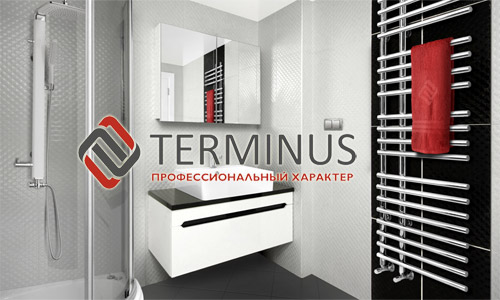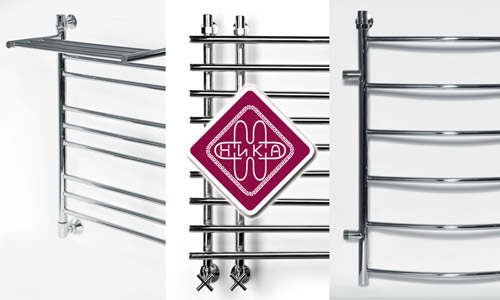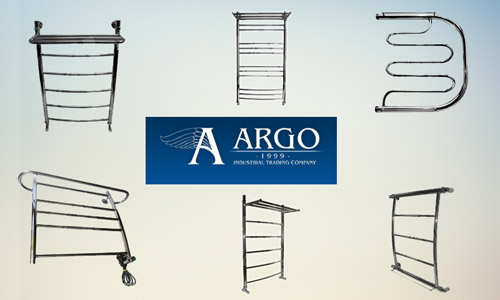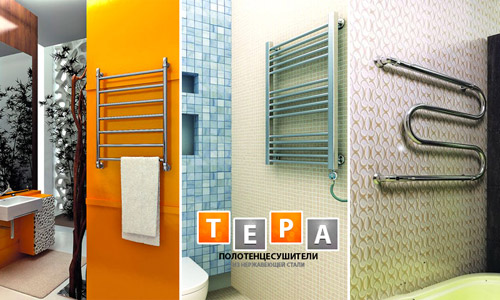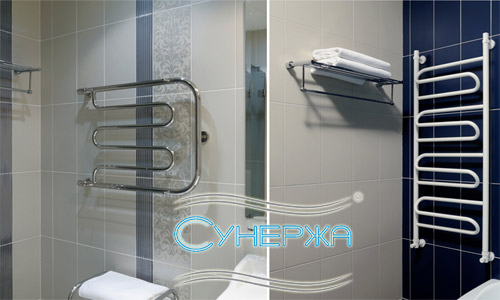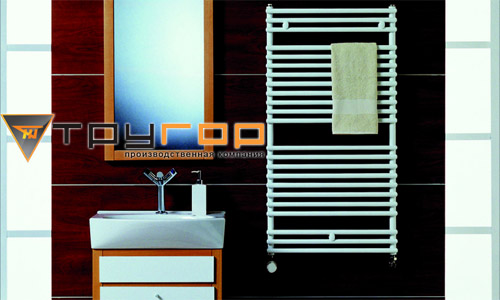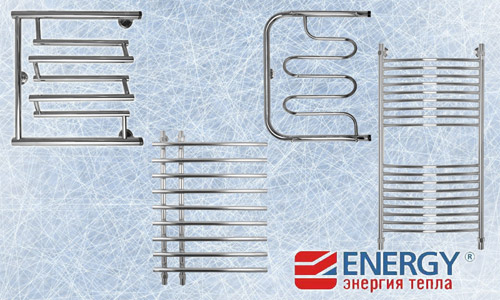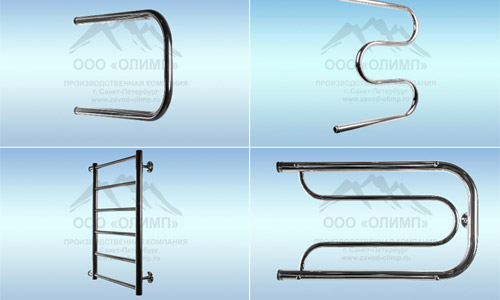Towel dryer reviews
A heated towel rail is used in the bathroom not only to dry things, but also to maintain optimal room temperature. There are two main varieties that are distinguished by the method of heating, electric and water based. What type and model of heated towel rails can best be found in reviews of heated towel rails of various brands.
Varieties of heated towel rails
1. Water towel warmers - they are connected either to the heating system or to the hot water supply network. They are a system of pipes of various sections. Usually the material for such products is stainless or black steel - a budget option, copper or brass and aluminum-based alloys.
2. Electric heated towel rails - are products in which a heating element or coil is located inside a metal tube in a dielectric heat transfer shell. Connecting electrical products can be carried out by the open method - connecting to a conventional outlet using a plug or hidden, with the wires being wired into the wall or masked by decorative elements. The energy consumption of such dryers is in the range of 25-100 watts and at the same time, some of the most technically advanced models have a potentiometer for changing the temperature.
According to the installation method, there are floor and wall products.
The external design distinguishes:
- M or S shaped bending of pipes;
- Placement of pipes in the form of a flat ladder with steps shifting horizontally;
- Classic pipe coil;
- Designed multi-hard structures with a complex interweaving of horizontal and vertical elements.
Criteria for choosing electric towel warmers
- Determining the average level of humidity in the bathroom will help you choose the required power;
- The area of the room and its height, the presence of false ceilings and underfloor heating;
- The generally accepted power standard is 140W per 1 m2.
Features of the choice of water models of heated towel rails
- Mandatory presence of an air release mechanism, usually a Mayevsky crane;
- External coating material: chrome, enamel or paint with heat-resistant and moisture-proof paint;
- The amount of pressure tested for which the device is designed. Especially when connected to a heating system.

